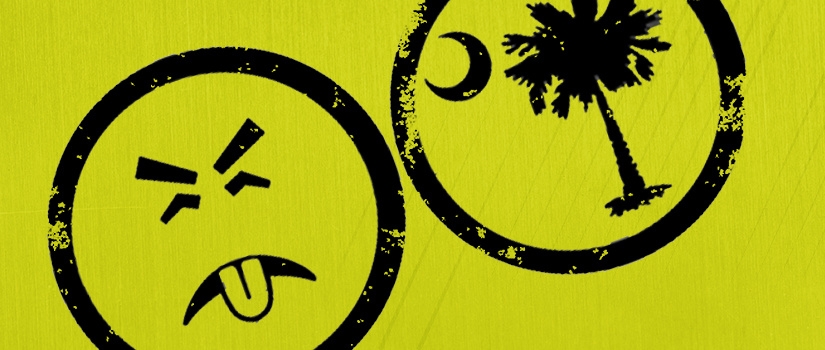Quick Tip: Do you have the Poison Control Center number saved in your phone? At home or on your way, we provide 24-hour service every day. Call 1-800-222-1222.
What is a Poison?
A poison is a substance that can cause injury or death if it comes into contact with
your body. Poisons can enter the body through several ways: by being inhaled, ingested,
or by direct skin contact. Poisons come in all different shapes, sizes, and colors.
Some poisons are even odorless and colorless. Accidental poisonings can happen from
improper storage or improper use, among other reasons.
Tips and Resources
Keep your family safe from accidental poisonings. Check out our safety tips and useful links compiled for South Carolina seniors, parents and caregivers. Find fun activities, teaching resources, and household checklists below that are free to download and share.
Medication Safety for Senior Citizens
- It is important at any age to keep medicines safely stored.
- Establish a routine for taking medications. Keep a journal if necessary.
- Take all of your medications with you to appointments with your doctor so that they can check for any potential drug interactions. Keep in mind that herbal medications can react with prescription medications as well.
- Make sure you put on your glasses to read labels and follow dosage instructions.
- Take all medications as directed, including over-the-counter medications.
- Never take another person’s medications.
- Dispose of all expired medications at a pharmacy or an approved disposal site.
- Call us at 1-800-222-1222 for information regarding taking the wrong medication or taking too much medication.
Keeping the Grandchildren Safe
- Store all potential poisons up high and out of the reach of children. This includes: cleaners, medications, over the counter medicines, alcohol, gasoline, lamp oil, detergents, etc.
- Keep in mind that many medications intended for seniors do not have a child resistant caps/closures. Even if they do, all medications still need to be stored out of the reach of children.
- Always make sure the kids ask first before they eat or drink anything at Grandparents' house. We know you make lots of goodies but we don’t want them accidentally ingesting something that was left out unattended.
- When watching children, never turn your back for a moment if you have a potential poison out and in use. This includes: answering the phone, answering the door, or using the restroom. Remember it only takes a second!
What to do if you are poisoned:
- Have the name of the substance or the product in hand when you call the poison center.
- Record the exact time of the exposure.
- Tell the specialist what symptoms you are having.
- Tell the specialist as much of your medical history as possible including your current medications and any allergies.
- Know your body weight.
- Know the telephone number you are calling from.
How do children get poisoned?
Children under 5 years of age are the most common poison victims. Children can get into poisons when substances are not properly stored, children are not properly supervised, or when a parent or caregiver becomes distracted while a product is out and in use. Some common distractions for parents and caregivers that can lead to a child poisoning incident may be:
- Preparing dinner
- Talking on the phone
- Watching television
- Answering the door
- A special event taking place
- Taking another child to the restroom
What are potential poisons in the home?
Poisons can be substances used on a daily basis that are commonly found in the home. Examples include:
- Medicines
- Plants
- Household cleaners
- Pesticides/herbicides
- Chemicals
- Art/hobby supplies
- Gases, fumes, and vapors from products
Childproofing your home
- Review the list of potential poisons in the home.
- Locate all potential poisons and make sure they are stored away and out of reach. (Note that safety locks and child resistant caps are designed to slow a child down, not be a substitute for supervision).
- Post the number for Poison Control in your home: 1-800-222-1222.
Leaving your child in someone else’s care
- Perform a safety check on the rooms your child may be in.
- Make sure you leave all important information for the caregiver such as the child's weight, known allergies, or medications taken.
- If your child will be taking medications while being cared for, give the caregiver specific instructions.
- Printable Home Checklist [pdf] Printable checklist
- Caregiver Guide [pdf] Printable guide
- Girl Scout Teaching Guide [pdf] Printable teaching guide
- Help Annie Find Her Way Home [pdf] Maze worksheet
- Things I Need to Stay Away From [pdf] Counting worksheet
- Poison Mix-n-Match [pdf] Matching worksheet
- Americas Poison Centers
- AAPCC Press Releases and Advisories
- Agency for Toxic Substance and Disease Registry (ATSDR)
- American Academy of Clinical Toxicology (AACT)
- American College of Medical Toxicology (ACMT)
- American Medical Association (AMA)
- American Pharmacists Association (APA)
- Centers for Disease Control and Prevention (CDC)
- Chemical Abstracts Services (CAS)
- Clemson University Extension Service
- Consumer Product Safety Commission (CPSC)
- Environmental Protection Agency (EPA)
- Food Safety & Inspection Service (USDA)
- Inhalants Abuse
- National Animal Poison Control Center
- National Pesticide Information Center
- Rx List Search
- South Carolina Department of Environmental Services
- South Carolina Department of Public Health
- Substance Abuse and Mental Health Services National Helpline
